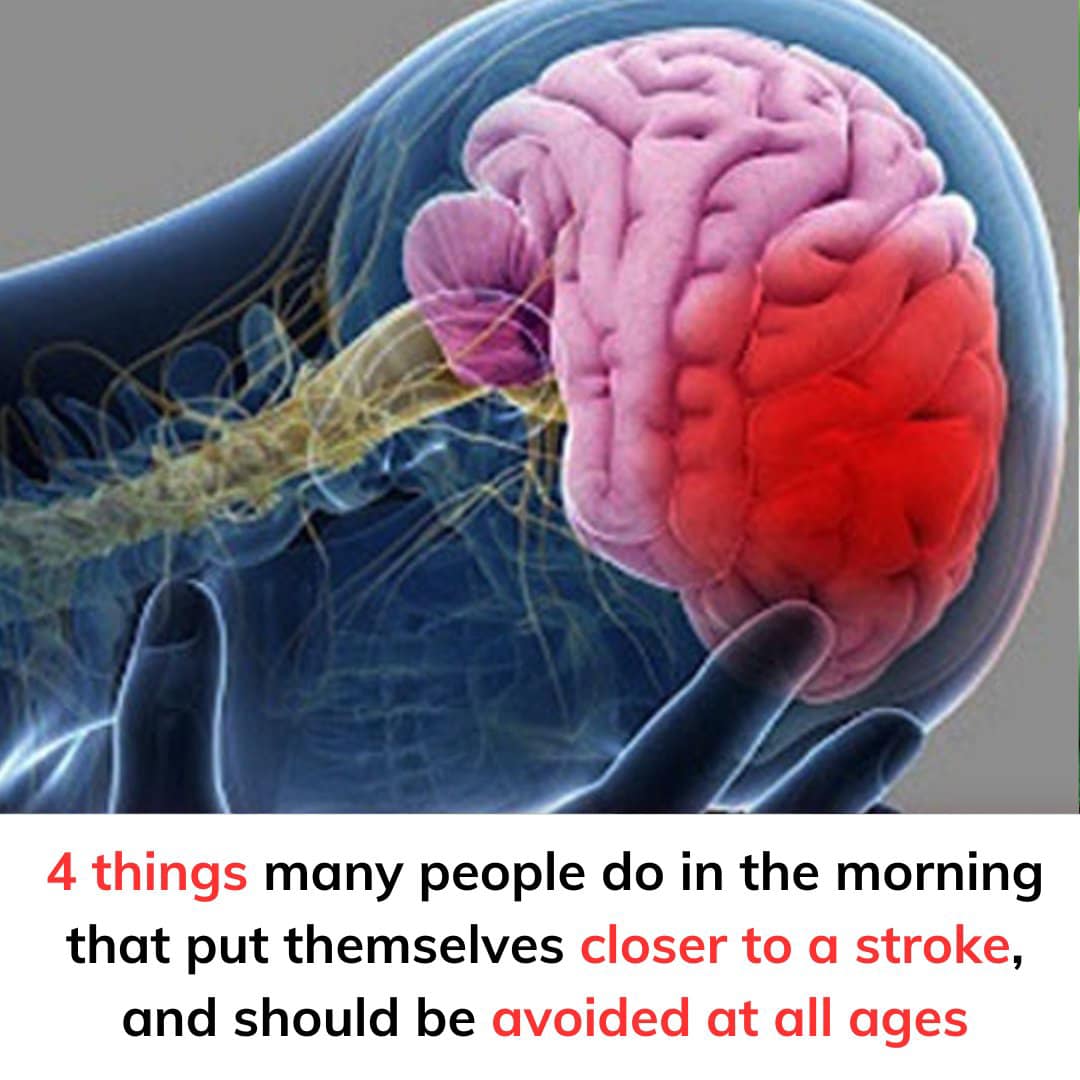Stroke is one of the most serious health concerns today, and it’s not limited to the elderly. In recent years, more young people have also been affected by strokes, making it essential to understand and avoid habits that might increase the risk. A stroke can have life-changing consequences, and if not detected and treated promptly, it can result in severe disabilities or even death. Surprisingly, some seemingly harmless morning habits could unknowingly put us at higher risk. According to Dr. Nguyen Xuan Quang from the Military Medical Academy, there are several common morning habits that we should immediately reconsider to reduce the likelihood of experiencing a stroke.

1. Jumping Out of Bed Immediately Upon Waking Up Many people have a habit of jumping out of bed as soon as their alarm goes off. However, health experts warn that this practice can significantly increase the risk of a stroke. While we sleep, our parasympathetic nervous system remains active, causing our heart rate to slow down, our blood pressure to drop, and our body to rest. When we suddenly jump out of bed, our sympathetic nervous system is abruptly activated. This shift causes our heart rate to spike, blood pressure to rise sharply, and small blood vessels in the brain to face increased pressure. In some cases, this can lead to a hemorrhagic stroke due to ruptured blood vessels.
Dr. Quang recommends a more gradual approach to waking up. After opening your eyes, lie still for one to two minutes. Use your hands to gently massage your face, head, eyes, and neck. This gradual adjustment allows your body to wake up naturally and reduces the sudden stress on your cardiovascular system.
2. Drinking Salt Water Right After Waking Up Many people believe that drinking a glass of diluted salt water first thing in the morning has health benefits, such as killing bacteria in the mouth, strengthening gums, and improving digestion. However, health experts advise against this habit. Excessive salt intake has long been linked to high blood pressure, kidney damage, and an increased risk of stroke. When consumed on an empty stomach, salt water can irritate the esophagus and stomach lining, potentially leading to inflammation and ulcers over time.
Drinking plain, room-temperature water is a far healthier choice. It rehydrates the body, kickstarts metabolism, and helps flush out toxins. If you prefer to add something to your water, a few drops of lemon juice are a much safer and healthier option than salt.
3. Exercising Too Early in the Morning Regular exercise is essential for maintaining good health, but timing matters. Exercising too early in the morning, especially before sunrise, can actually do more harm than good. At dawn, temperatures are often lower, and the body has not fully adjusted to the transition from sleep to wakefulness. Exercising in cold temperatures can cause blood vessels to constrict, which increases the risk of cardiovascular issues, including heart attacks, strokes, and other cerebrovascular diseases.
For individuals with underlying health conditions, exercising too early in the morning can lead to serious consequences, including sleep deprivation and weakened physical performance. Dr. Quang advises scheduling exercise after sunrise when the temperature is slightly warmer and the body has had time to adjust. A mid-morning workout or a light stretching routine indoors is often a safer and more effective option.
4. Drinking Too Much Water Immediately After Waking Up Staying hydrated is undeniably important, and drinking water in the morning offers many health benefits. However, consuming large amounts of water in one go—especially during colder months—can strain the cardiovascular system. When we drink too much water too quickly, it puts extra pressure on the heart and circulatory system, which can lead to shortness of breath, an irregular heartbeat, and, in extreme cases, an increased risk of stroke.
Instead, it’s best to drink water in moderation. Experts recommend starting your day with a small glass of water, approximately 200–300ml, sipped slowly rather than chugged down all at once. This helps rehydrate the body without placing unnecessary strain on your heart.
Small Changes, Big Impact The habits we practice in the morning set the tone for the rest of the day. While these morning routines may seem harmless, they can have significant long-term effects on our health. Taking small steps, such as waking up gradually, avoiding unnecessary salt intake, scheduling exercise at an appropriate time, and drinking water in moderation, can help reduce the risk of stroke and other cardiovascular issues.
Being aware of these habits and making conscious efforts to change them can go a long way in safeguarding our health. Stroke is a condition that doesn’t discriminate by age, and prevention remains the most effective strategy. Simple adjustments to our morning routines can significantly lower the risk and contribute to a healthier, more balanced life.
In conclusion, it’s crucial to recognize the potential dangers hidden in everyday habits. By avoiding sudden movements upon waking, skipping salt water, choosing the right time for exercise, and drinking water in moderation, we can better protect ourselves from stroke and related health complications. Health is a lifelong investment, and being mindful of our morning habits is a simple yet powerful way to prioritize it. Share this knowledge with family and friends—it might just save a life.





